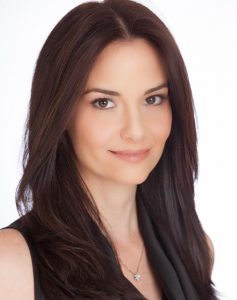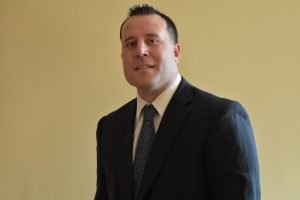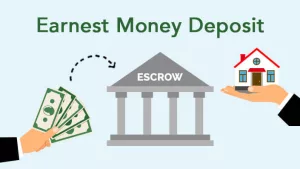Best NYC mortgage banker & broker (2025)
January 1, 2025 by Georges Benoliel
Go Back To Previous Page
To get a mortgage in NYC, some home purchasers’ first reflex is to check Bank of America’s mortgage rates online. More broadly, you can contact either a (i) mortgage banker or a (ii) mortgage broker. The difference between a mortgage broker and a banker is that a mortgage broker cannot lend any money. The broker is merely originating and “brokering” a loan by selling it to a bank.
mortgage broker and a banker is that a mortgage broker cannot lend any money. The broker is merely originating and “brokering” a loan by selling it to a bank.
In other words, a mortgage broker is a middleman. Therefore, the broker has limited skin in the game. Conversely, a retail mortgage banker typically represents a traditional bank lender like Wells, HSBC, JPMorgan Chase, or Bank of America. A bank generally commits its capital to fund a mortgage, even if it securitizes it later.
Inversely, a mortgage broker is shopping for the best loan products among the community of wholesale lenders. Who are the best mortgage bankers in NYC?
In economics, mortgage brokers usually get paid either by the borrower or the lender. Therefore, they may earn 1 to 2% of the balance they originate and sometimes more. However, the payout keeps decreasing to around 1% or less due to higher competition from Fintech and direct lenders.
It is challenging for mortgage brokers to operate in a market like New York City, where large banks have such a strong foothold. Indeed, it takes a couple of phone calls for bank clients to talk to the bank’s mortgage lending division. First, we must disclose that paying referral commissions between real estate brokers and mortgage bankers/brokers is illegal. Then, we are happy to introduce the best ones out there, “no strings attached.”
Why should I work with a Mortgage Broker in NYC?
A mortgage broker is a middleman between a borrower and a lender. However, there can be benefits to using a broker. We advise NestApple clients to go through a broker in suburban areas where large banks do not have a robust physical foothold. We also recommend using brokers for harder-to-originate mortgages.
broker. We advise NestApple clients to go through a broker in suburban areas where large banks do not have a robust physical foothold. We also recommend using brokers for harder-to-originate mortgages.
This can include entrepreneurs, foreign buyers without a green card or visa, investment property, home construction loans, etc. In those cases, it is sometimes easier for a consumer to enlist a mortgage broker’s help to shop for the best option.
NestApple also recommends using a mortgage broker for first-time homebuyers who do not know which banks are competitive in their area. The mortgage broker keeps updated records from banks for the best interest rates and products.
Why should I work with a Mortgage Banker in NYC?
We like the large bank lenders in the heart of New York City. We also recommend large lending institutions for a plain vanilla profile with a stable income, high FICO, and a W9. For those profiles, banks will aggressively compete to originate those mortgages.
institutions for a plain vanilla profile with a stable income, high FICO, and a W9. For those profiles, banks will aggressively compete to originate those mortgages.
In NYC, potential buyers typically have banking relationships with large banks due to a robust physical presence near their homes or workplaces. Savvy NYC buyers know they may get a better rate directly from a mortgage lender for a primary residence.
Most NYC home buyers and owners are also familiar with large banks’ names, which will typically be competitive.
Lastly, mortgage brokers are in closer contact with the bank mortgage underwriter and decision-makers. For example, you may not hear back on your commitment letter for weeks when working with a mortgage broker.
The mortgage broker is waiting to hear back from the bank’s underwriting department. The banker typically has easier access to their underwriter and sometimes talks at the coffee machine. The mortgage banker may also have more influence throughout the process and seek exceptions for specific concerns.
Shall I use a Correspondent Bank Lender in NYC?
A Correspondent Bank is a bank that temporarily funds its mortgage originations through “warehouse lines of credit” from other banks. In other words, this institution will draw on a line of credit to originate and fund a mortgage. However, it will try to sell the loan immediately after closing.
words, this institution will draw on a line of credit to originate and fund a mortgage. However, it will try to sell the loan immediately after closing.
Once the mortgage is sold to another bank, the correspondent bank uses the proceeds to pay off the revolving line of credit. Sometimes, the correspondent bank sells the mortgage to Fannie or Freddie.
In short, the institution takes the credit risk for a limited time before selling the loan off its balance sheet. It does not service the loan, where most banks make money with late fees, prepayment fees, etc.
This is a “flow business.” The more they originate, the more they can recycle. The correspondent bank can do it again once they pay off the credit line. It draws on the line again to fund a new mortgage.
How to Become a Mortgage Broker in NYC?
A mortgage broker solicits, processes, places, or negotiates residential mortgages. This responsibility requires a specific registration by the New York State Department of Financial Services with the following requirements.”
- Good standing in the community
- Two years of relevant experience or education
- A credit report
- A set of fingerprints and a $99 fingerprint fee
- A $1,500 investigation fee
- The submission of a surety bond or a pledged deposit of $10,000
Can a Real Estate Broker also become a Mortgage Broker?
Yes, in New York State. However, he must submit a dual agency affidavit to the NYS Department of Financial Services. Under Article 12-D of the New York Banking Law and Section 443 of New York’s Real Property Law, a mortgage broker who is also a real estate broker in the same residential real estate transaction must disclose dual agency to all parties.
People employed by licensed mortgage brokers or mortgage bankers do not need a license of their own
How to Become a Mortgage Banker in NYC?
A mortgage banker gets licensed by the New York State Department of Financial Services to make residential mortgage loans. The requirements to become a mortgage banker are as follows:
- A net worth of at least $250,000
- Have a line of credit of at least $1 million
- File a surety bond for at least $50,000
- Employees must have at least five years of experience in making residential mortgage loans.
- A demonstration of good character
- A background report ($3,000 investigation fee)
- A set of fingerprints ($99 fingerprint fee)
The best 2023 mortgage bankers and mortgage brokers in New York

Jason Ritchie at HSBC (contact)
Jason, a native New Yorker, has 16 years of residential mortgage lending experience, 12 of which were at HSBC. He is the top-producing loan officer for HSBC on the East Coast. Jason’s success is attributed to his impeccable service, ability to understand complicated finances, and consistency.
He offers a wide range of mortgage programs, such as 80% financing up to $5 million, which includes multifamily lending, interest-only, and non-traditional lending. Don’t hesitate to call him and pick his brain: 646-676-8603
Burke Purcell at Bank of England (contact)
 Burke runs the NYC metro region for Bank of England Mortgage and offers creative mortgage programs that differ from those of retail lenders. Many programs do not require tax returns, including loans for self-employed borrowers, investors, and high-net-worth individuals. He offers jumbo mortgages with as little as 5% down, piggyback 1st & 2nd mortgages, loans for foreign buyers, non-warrantable condos, refinances with unlimited cash-out, and underwrites loans using a common-sense approach.
Burke runs the NYC metro region for Bank of England Mortgage and offers creative mortgage programs that differ from those of retail lenders. Many programs do not require tax returns, including loans for self-employed borrowers, investors, and high-net-worth individuals. He offers jumbo mortgages with as little as 5% down, piggyback 1st & 2nd mortgages, loans for foreign buyers, non-warrantable condos, refinances with unlimited cash-out, and underwrites loans using a common-sense approach.
Debra Shultz at Guaranteed Rate (contact)
With over 23 years of experience in mortgage lending, Debra is an expert in residential mortgage financing for all property types, including single—and multifamily residences, townhomes, condos, co-ops, condops, new developments, and conversions. She has access to just about every mortgage product on the market.
types, including single—and multifamily residences, townhomes, condos, co-ops, condops, new developments, and conversions. She has access to just about every mortgage product on the market.
The more traditional products include options for jumbo and super-jumbo loan amounts, Fannie Mae and Freddie Mac conforming loan amounts, FHA and VA government loans, and Construction and Renovation loans. Debra frequently performs “mortgage magic” for non-traditional borrowers facing out-of-the-box scenarios.
Product features include interest-only payments, business deposits as income for self-employed clients, assets as income for high-net-worth clients, options for non-warrantable condos and coops, and financing options for foreign buyers.
Antonio Ciccullo at TD Bank (contact)
Antoni0 is the best in 3 types of loans and benefits from the cheap funding of a Canadian bank! Also, TD is one of the few construction loan lenders.
- Construction to permanent loans and mortgages (80% loan to value on loan amounts up to $3,000,000 and 65% loan to value on loan amounts
 $3,000,001 – $6,000,000. We base the loan-to-value on the sum of the purchase price + renovation costs for purchase, and we base the loan-to-value on the “subject to completion value” for refinance transactions.
$3,000,001 – $6,000,000. We base the loan-to-value on the sum of the purchase price + renovation costs for purchase, and we base the loan-to-value on the “subject to completion value” for refinance transactions.
- Jumbo loans (90% loan-to-value on 1-2 family homes with a loan amount of up to $2,500,000)
- 80% loan-to-value on purchase transactions for loan amounts up to $3,000,000 on 1-4 family homes, co-ops, and condo units
 broker. We advise NestApple clients to go through a broker in suburban areas where large banks do not have a robust physical foothold. We also recommend using brokers for harder-to-originate mortgages.
broker. We advise NestApple clients to go through a broker in suburban areas where large banks do not have a robust physical foothold. We also recommend using brokers for harder-to-originate mortgages. mortgage broker and a banker is that a mortgage broker cannot lend any money. The broker is merely
mortgage broker and a banker is that a mortgage broker cannot lend any money. The broker is merely  institutions for a plain vanilla profile with a stable income, high FICO, and a W9. For those profiles, banks will aggressively compete to originate those mortgages.
institutions for a plain vanilla profile with a stable income, high FICO, and a W9. For those profiles, banks will aggressively compete to originate those mortgages. words, this institution will draw on a line of credit to originate and fund a mortgage. However, it will try to sell the loan immediately after closing.
words, this institution will draw on a line of credit to originate and fund a mortgage. However, it will try to sell the loan immediately after closing.
 Burke runs the NYC metro region for Bank of England Mortgage and offers creative mortgage programs that differ from those of retail lenders. Many programs do not require tax returns, including loans for self-employed borrowers, investors, and high-net-worth individuals. He offers jumbo mortgages with as little as 5% down, piggyback 1st & 2nd mortgages, loans for foreign buyers, non-warrantable condos, refinances with unlimited cash-out, and underwrites loans using a common-sense approach.
Burke runs the NYC metro region for Bank of England Mortgage and offers creative mortgage programs that differ from those of retail lenders. Many programs do not require tax returns, including loans for self-employed borrowers, investors, and high-net-worth individuals. He offers jumbo mortgages with as little as 5% down, piggyback 1st & 2nd mortgages, loans for foreign buyers, non-warrantable condos, refinances with unlimited cash-out, and underwrites loans using a common-sense approach. types, including single—and multifamily residences, townhomes, condos, co-ops, condops, new developments, and conversions. She has access to just about every mortgage product on the market.
types, including single—and multifamily residences, townhomes, condos, co-ops, condops, new developments, and conversions. She has access to just about every mortgage product on the market. $3,000,001 – $6,000,000. We base the loan-to-value on the sum of the purchase price + renovation costs for purchase, and we base the loan-to-value on the “subject to completion value” for refinance transactions.
$3,000,001 – $6,000,000. We base the loan-to-value on the sum of the purchase price + renovation costs for purchase, and we base the loan-to-value on the “subject to completion value” for refinance transactions.

